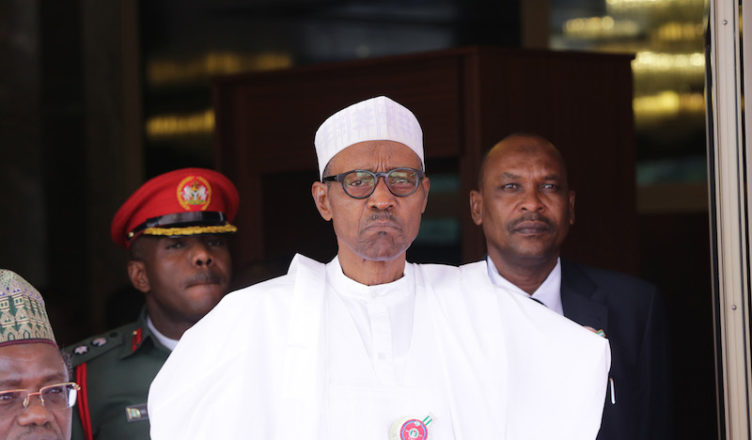President Muhammadu Buhari yesterday presented the scorecard of his administration, saying his high-impact projects meet the yearnings and expectations of Nigerians.
He said the level of progress made in the implementation of his nine-priority agenda had remarkably impacted sectors like power, communications, digital economy, oil and gas, national security, anti-graft war, social investment, health, and agriculture.
The President spoke during the opening of the Ministerial Performance Review Retreat of this administration in Abuja.
He revealed that Nigerian Air Force(NAF) would before the end of his tenure have additional 36 fighter jets and that Nigeria Air would begin operations before December 31.
The retreat is the last edition in the last four years of Buhari’s second term tenure.
The President told participants and guests, including the keynote speaker and immediate past Kenyan President, Uhuru Kenyatta, that his administration had made a spirited effort towards strengthening national security.
According to him, his government made substantial investments in the purchase of weapons and other critical military hardware as well as continuous training of members of the Armed Forces.
His words: “The Nigerian Air Force has acquired 38 new aircraft and is expecting another batch of 36 new ones, while the Nigerian Navy has been equipped with new platforms, sophisticated riverine, rigid-hull inflatable, seaward defence, whaler, and fast attack boats as well as helicopters and capital ships.
“To boost the number of our Police personnel, 20,000 policemen have been recruited, trained, fully integrated, and deployed in 2020 and 2021. This exercise has strengthened our community policing strategy which is enshrined in the Police Act, 2020.
On aviation, the President said the national carrier(Nigeria Air), the establishment of which has attained 91 percent completion is being boosted with the certification of Lagos and Abuja International Airports by the International Civil Aviation Organisation (ICAO).
According to the President, Kano and Port Harcourt Airports are undergoing similar certification processes.
On the economy, the President stated that the country had witnessed seven consecutive quarters of growth, after negative growth rates in the second and third quarters of 2020.
He noted: “The GDP grew by 3.54 percent (year-on-year) in real terms in the 2nd Quarter of 2022. This growth rate represents a sustained positive economic performance, especially for the Non-Oil GDP which fell by 4.77 percent in Q2 2022 against Oil GDP which grew by -11.77 percent.
“Most sectors of the economy recorded positive growth which reflects the effective implementation of the economic sustainability measures introduced by this Administration.”
On communications and the digital economy, Buhari said giant strides have been made through broadband coverage which currently stands at 44.32 percent, reinforced by 77.52 percent 4G coverage, with the establishment of 36,751 4G base stations nationwide.
Similarly, the President declared that the power sector has remained a critical priority for his administration, adding that the implementation of a ‘willing buyer-willing seller’ policy has opened up opportunities for increased delivery of electricity to underserved homes and industries.
He said: ”It is important to state that the partnership between the Federal Government and German Siemens AG through the Presidential Power Initiative to increase electricity generation to 25,000 Megawatts (MW) in six years is on the course, as the first batch of the transformers has arrived Nigeria already.”
The President also recalled feats recorded in the oil and gas sector.
In the fight against corruption, Buhari promised that his administration would continue to review and prosecute high-profile corruption cases and ensure speedy completion.
The President also said his administration has constructed 408km of roads; 2,499-kilometre of SUKUK roads and maintained 15,961-kilometre of roads across the country.
“Key among these projects is the 1.9-kilometre Second Niger Bridge with 10.30-kilometre approach road; rehabilitation, construction and expansion of Lagos-Sagamu-Ibadan dual carriageway; the ongoing rehabilitation of Abuja-Kaduna-Zaria-Kano Road, among others,” he said.
He added that over 941-kilometre of completed SUKUK road projects have been handed over.
Furthermore, Buhari said that the Federal Government has embarked on the reconstruction of 21 selected Federal Roads under the Road Infrastructure Development and Refurbishment Investment Tax Credit Policy.
Concerning Social Investment Programmes, the President said 9,990,862 pupils are being fed through the School Feeding Programme, which employs 128,531 cooks in local communities.
He also said that 51.7million Nigerians received the first dose of the COVID-19 vaccine, representing 46.3 percent of the eligible population at the end of last month.
On agriculture, the President expressed delight that as a direct result of the investment, the sector has experienced significant growth.
“The shortfall in food production and food importation bills have both been reduced significantly. Along with the production of other staple crops, we have reached our goal of self-sufficiency in rice production.
“We are exerting a lot of effort to solve the problem of the rising cost of food that is related to inflation, being a global crisis”, he said.
*Plans underway to metre 6 m households
Vice President Yemi Osinbajo said efforts are underway to provide electricity metres for an additional six million households.
In his presentation titled: “The President Muhammadu Buhari administration: Reflections on the journey so far”, Osinbajo said mass metering schemes would have a huge impact on electricity supply across the country.
“The National Mass Metering Programme being financed by the CBN has created 10,000 jobs and distributed 1 million metres and is establishing a structure to metre an additional 6 million households and sustainably eliminate the metering gap.
“Forty-one metre factories are now present in Nigeria; where do we go from here? One grid is unrealistic; we need two others, private sector run.’’
The vice president said that the deployment of the technology would radically transform the digital technology landscape in Nigeria in the next few years.
Nigeria, he added has embarked on the National Information and Communications Technology Infrastructure Backbone II (NICTIB II) to connect 20 states with fibre optics that had not been connected in NICTIB I.’’
The vice president said tremendous progress has been made in expanding the digital identity database from less than 40 million people with National Identification Numbers (NINs) in 2020 to 90,268,742 NIN records as of the end of September.
He, however, noted that there have been some drawbacks to economic performance.
According to him, “the first is the synergy between fiscal and monetary policy. The failure of that synergy has led to unnecessary drawbacks in our economic performance and planning.”
On monetary policy, the vice president said: “Our exchange rate management continues to be an issue. The exchange rate of the naira to convertible currencies continues to face significant downward pressure because demand substantially outstrips supply.
“That is just the reality. On one hand, we have tried demand management and rationing, which has not really worked because fixing the price while the parallel market reveals a massive arbitrage merely creates the opportunity for massive rents.”
“It will also compound the backlog of remittances for foreign businesses who want to repatriate their earnings. The discussion that we must now have going forward is how best to manage the situation by finding a mechanism for increasing supply and moderating demand which will be transparent and will boost confidence.
“I think that a more market-driven approach will be best, some price discovery within the context of a managed float is certainly required.”
Kenyatta, who was the keynote speaker stressed the need to carry opposition parties along for a peaceful and progressive country to be achieved.
Drawing from his example in Kenya, he said countries in Africa have the same developmental problems, which he said must be confronted irrespective of who is in power.
He said what is important was the continuity of programmes and succession planning.
Secretary to the Government of the Federation, Boss Mustapha spoke of a plan by the President to sign an Executive Order on Improving Performance Management, Coordination, and Implementation of Presidential Priorities of the Federal Government of Nigeria at the end of the 3rd Ministerial Performance Review Retreat.
British High Commissioner to Nigeria, Catriona Laing, Speaker of the House Representatives, Femi Gbajabiamila, and Senate President Ahmed Lawan delivered goodwill messages at the retreat.
Source: The Nation

